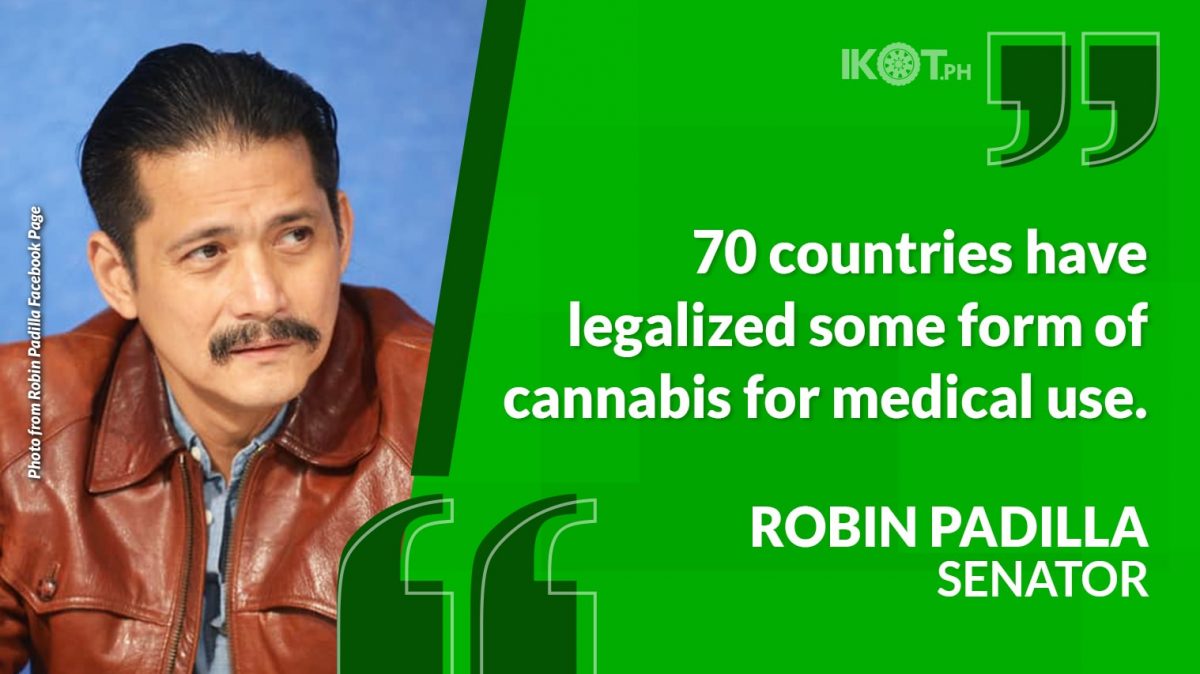Senator Robin Padilla wants the Department of Health (DOH) to foster and strengthen international collaboration with its foreign counterparts to harness expertise and expand research and development for using medical cannabis.
Padilla filed Senate Resolution 1066 where he noted some nations have developed fully regulated markets such as taxed and regulated frameworks for retail distribution of a variety of cannabis products for adults.
“(G)iven the growing acceptance of cannabis as an alternative and safe option for treatment, our country’s health department must exercise openness and willingness to engage with international partners.”
“(G)iven the growing acceptance of cannabis as an alternative and safe option for treatment, our country’s health department must exercise openness and willingness to engage with international partners as this can be beneficial in facilitating knowledge and information sharing, and collaborative research initiatives,” the legislator said.
The lawmaker also noted there are notable international conferences abroad, such as the Annual Cannabis Research Conference in Colorado, USA, the Annual Medical Cannabis Conference by the Medical University of South Carolina, USA, the Australian Medical Cannabis Symposium in Brisbane, Australia, and the International Medical Cannabis Conference in Tel Aviv, Israel.
“(T)he DOH’s participation in similar international conferences is consistent with their mandate to adopt an evidence-based and scientific approach in the adoption of new strategies that will address emerging health needs which can include the adoption and use of medical cannabis,” the senator added.
He noted that under Sec. 12, Art. XIII of the 1987 Constitution, the State shall undertake appropriate health manpower development and research that is responsive to the country’s health needs and problems.
Also, Padilla said Executive Order 102 acknowledged the role of the DOH as the Philippines’ “innovator of new strategies for responding to emerging health needs and as the lead agency in health and medical research,” and granted the DOH “the mandate to promote and maintain international linkages for technical collaboration”.
He added that while cannabis is listed as a dangerous drug under Republic Act 9165 (Comprehensive Dangerous Drugs Act), the Dangerous Drugs Board (DDB) and Food and Drug Administration (FDA) approved the use of cannabidiol (CBD) for patients afflicted with epilepsy, such as the oral solution Epidiolex for treatment of seizures associated with severe forms of epilepsy in 2020.
“Cannabis consumption is useful in reducing pain and nausea, and in effectively treating symptoms of multiple sclerosis and epilepsy.”
On the other hand, Padilla said various countries have acknowledged the therapeutic potential of medical cannabis, while the World Health Organization (WHO) cited scientific studies showing that cannabis consumption “is useful in reducing pain and nausea, and in effectively treating symptoms of multiple sclerosis and epilepsy”.
He added that 70 countries have legalized some form of cannabis for medical use, up from 50 in 2019. At least 26 countries are providing medical patients with legal access to high-THC cannabis.



